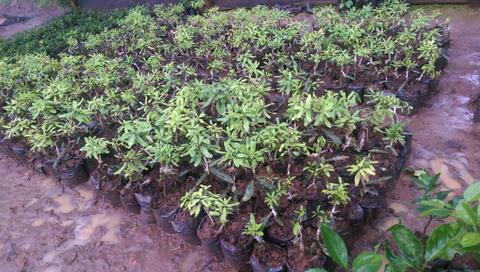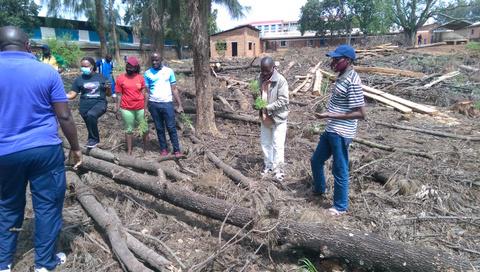Jean Claude Tumushime
Other projects
4 Sep 2017
Mapping Roosting Habitats of Straw-Coloured (Eidolon helvum) Fruit Bats in Kigali City and Rwamagana District and Enhancing their Conservation
10 Dec 2021
Securing the Future of Straw-Coloured Fruit Bats Amidst COVID-19 through Community Outreach, Communication and Habitat Restoration - Kigali City & Rwamagana
The Straw-coloured fruit bat-Eidolon helvum is severely threatened in Rwanda because its roost sites on trees in public places and near human habitations are unprotected. Their close interaction with people coupled with negative perceptions, traditional beliefs and misplaced fears about bats as virulent reservoirs of viruses exert pressure on people and prompt them to destroy their habitat and direct killings at roost sites. This project will restore traditional roost sites by planting indigenous fast-growing trees on massive scale, intensify efforts to counter negative perceptions and educate communities on the need to conserve this keystone species and its habitat. The present project will also work closely with schools and students’ environmental clubs and will be sensitize them on the importance of bat conservation.

Tree nursery photo © Jean Claude
Conservation of endangered straw-coloured fruit bats (Eidolon helvum) in Rwanda is still in its infancy stage. This suggests that a holistic multidisciplinary approach has to be adopted and evidence-based interventions have to be developed if conservation sustainability is to be achieved. During the implementation of RSG1 various roost sites in Kigali and its environs were identified and mapped and their threats were documented. More specifically habitat degradation of straw-coloured fruit bats especially in urban areas coupled with negative perceptions towards bats, misinformation about bats by people in vicinity of roost sites and other disturbances to roost sites were identified as the major threats to the survival of straw-coloured fruit bats. For instance the roost sites that registered significant number of bats during our field visits namely Kigali City-Camp Kigali (-1.961573, 30.060773) and Rwamagana District-Duha (-1.879968, 30.347490) continue to experience adverse anthropogenic activities that threaten the bats.

Planting trees in a degraded bat habitat-roost at Camp Kigali © Jean Claude Tumushime
The present project will be conducted at the above mentioned roost sites and will seek to provide conservation solutions to identified critical problems.
Firstly we will establish tree nurseries of fast-growing indigenous trees and mature seedlings will be planted to restore degraded habitats of straw-coloured fruit bats at our sites. The planting of seedlings will be carried out with participation of members of students’ environmental clubs so that they acquire skills related to habitat restoration.
Secondary our team will conduct sensitization and awareness campaigns that will target communities neighboring roost sites, schools and other key people (local authorities, opinion leaders, head teachers among others) who can help in spreading the message of straw-coloured fruit bat conservation. Also during this exercise, the team will conduct surveys that will help in gathering more information on people’s perceptions about bats so that we can gauge the level of mindset change in as far as bat conservation is concerned.
Thirdly the project team will design, produce and distribute educational teaching materials about bat conservation in primary and secondary schools neighboring bat roost sites and the emphasis will be put on providing workshops to members of students’ environmental clubs as they are the future custodians of bat conservation in Rwanda.
In summary, the core aims of the project will be to restore degraded habitats by planting fast-growing indigenous trees, conducting educational and outreach programmes about bats’ role in the ecosystem and advocating for the establishment of a legal protection for endangered straw-coloured fruit bat in Rwanda.